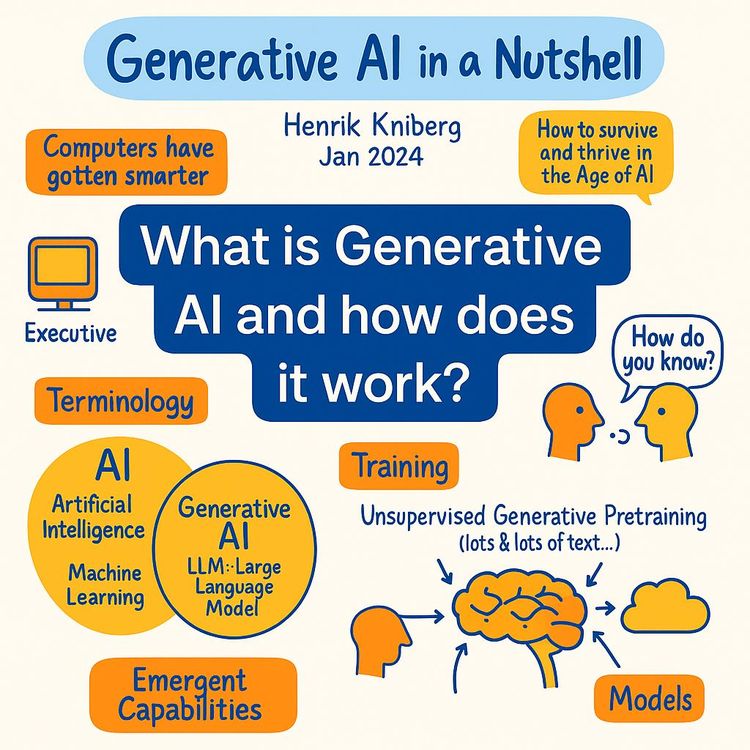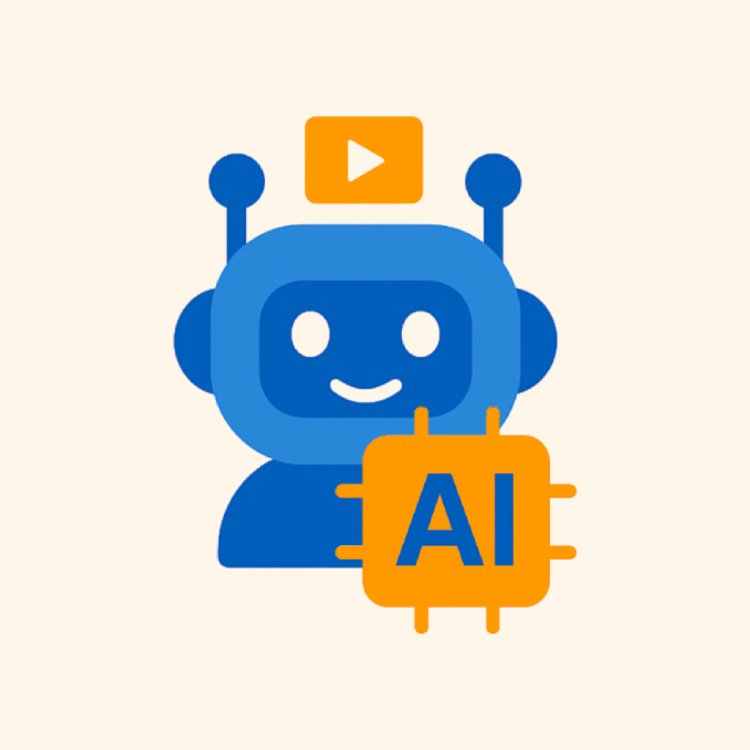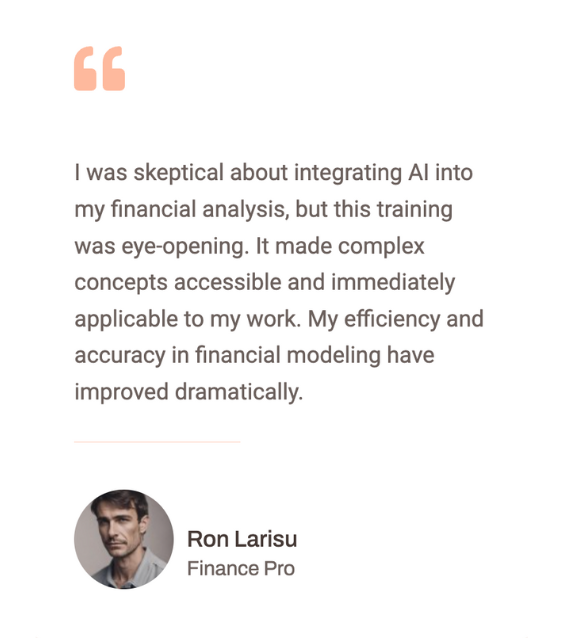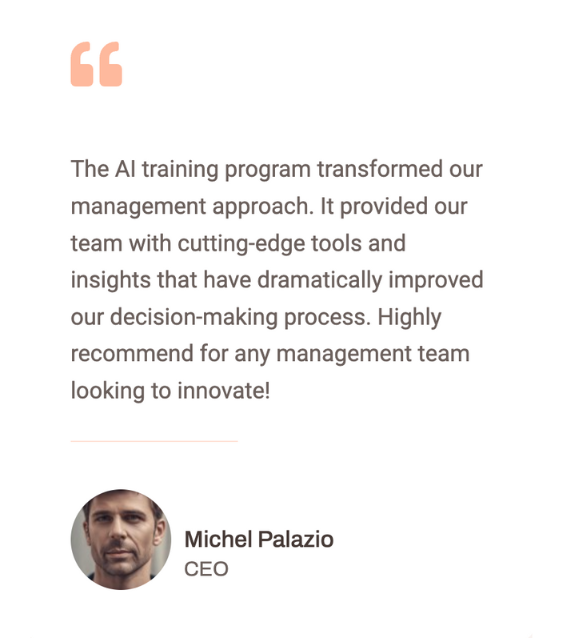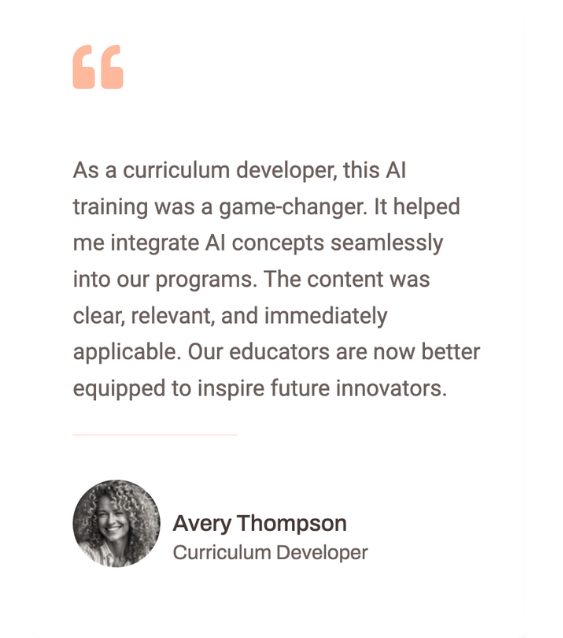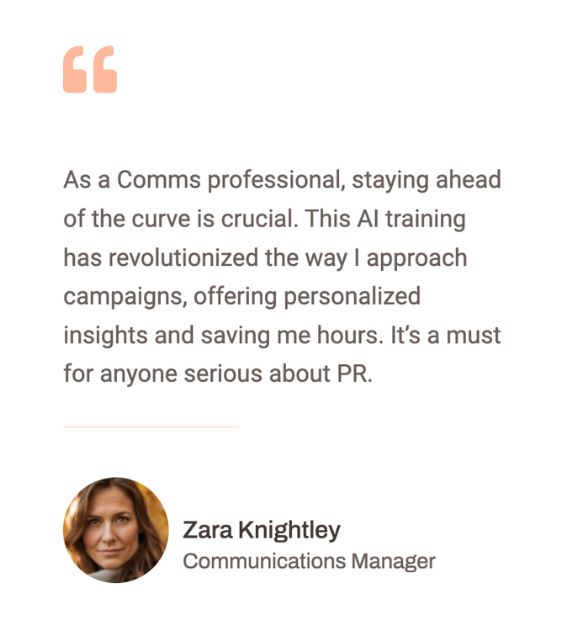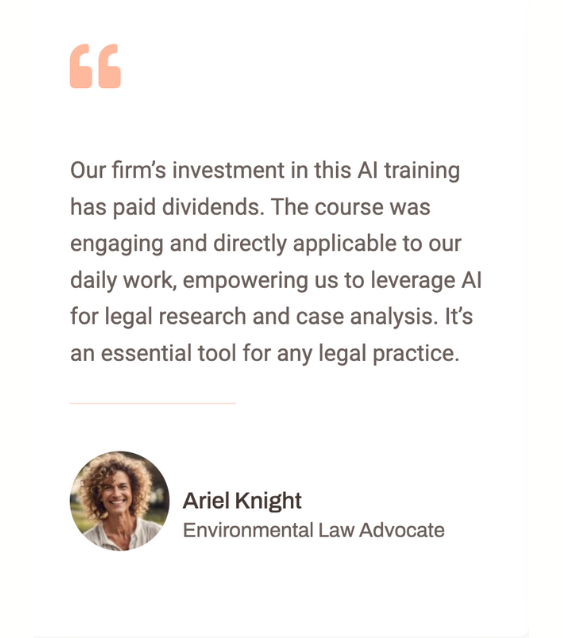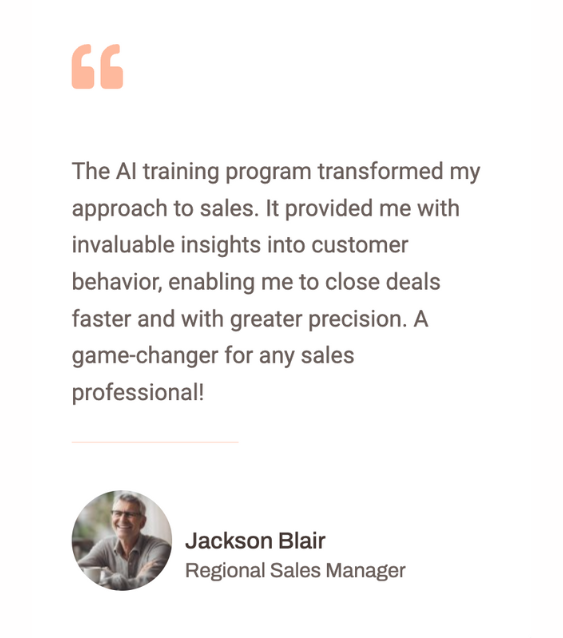Video Course: Part 33 - AI-Mediated Knowldege Management
Explore how AI can revolutionize Knowledge Management, enhancing accessibility, productivity, and innovation. Equip yourself to implement AI-driven solutions that transform organizational learning and efficiency.
Related Certification: Certification: AI-Driven Knowledge Management Skills for Modern Professionals
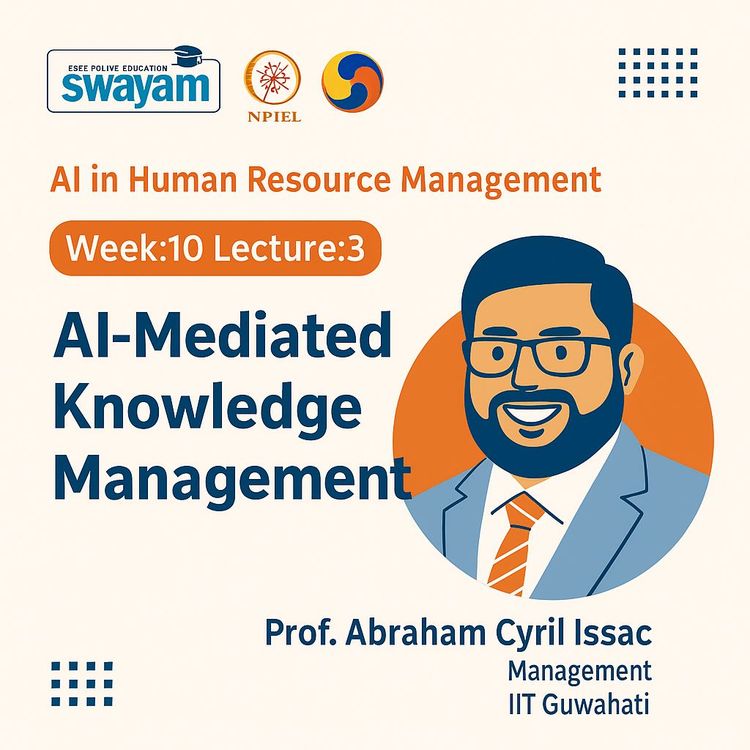
Also includes Access to All:
What You Will Learn
- Recognize limitations of traditional Knowledge Management
- Apply NLP and ML techniques for content discovery
- Design semantic search and automated content curation
- Use AI to preserve institutional memory and reduce knowledge loss
- Establish governance to mitigate bias and protect data privacy
Study Guide
Introduction to AI-Mediated Knowledge Management
Welcome to the course on AI-Mediated Knowledge Management. This course is designed to provide a comprehensive understanding of how Artificial Intelligence (AI) can revolutionize Knowledge Management (KM) practices. As organizations strive for sustainability and competitive advantage, managing knowledge effectively becomes paramount. This course will guide you through the intricacies of traditional KM, its challenges, and how AI serves as a transformative catalyst. By the end of this course, you will be equipped with the knowledge to implement AI-driven KM solutions that enhance organizational learning, innovation, and efficiency.
The Importance and Challenges of Traditional Knowledge Management
Understanding Knowledge Management
Knowledge Management involves capturing, distributing, and effectively utilizing an organization's collective knowledge. It is crucial for fostering organizational learning and maintaining a competitive edge. However, traditional KM practices face several challenges.
Challenges of Traditional Knowledge Management
Traditional KM systems often struggle with issues like information silos, outdated information, time-consuming retrieval, and lack of personalization. For instance, information stored across various departments without cross-functional accessibilities creates silos, limiting the flow of knowledge. Additionally, systems often lack mechanisms for regularly updating data, leading to knowledge decay.
Institutional Memory and Knowledge Hiding
Institutional memory refers to the risk of knowledge loss when individuals leave an organization. This is compounded by the phenomenon of knowledge hiding, where employees withhold information due to fears of exploitation or the belief that others should exert similar efforts to acquire knowledge.
AI as a Catalyst for Knowledge Management Transformation
AI's Role in Transforming KM
AI introduces automation, accuracy, and analytical depth to Knowledge Management. Machine Learning (ML) algorithms analyze data to identify patterns and trends, aiding in predictive and prescriptive decision-making. For example, AI can improve search and content recommendations by understanding user behavior and preferences.
Natural Language Processing (NLP) in KM
NLP enables machines to understand and generate human language, facilitating text analysis, sentiment evaluation, translation, and content summarization. This allows organizations to automate the categorization and tagging of content based on semantic meaning and context, simplifying retrieval.
Robotic Process Automation (RPA) and Cognitive Computing
RPA automates repetitive tasks like data entry and tagging, freeing up employees for strategic work. Cognitive computing stimulates human thought processes in real-time, aiding in complex decision-making and response generation, particularly useful for AI assistants and chatbots.
Key Applications of AI in Knowledge Management
Knowledge Discovery and Extraction
AI algorithms can sift through vast quantities of data to identify patterns, relationships, and trends that may be hidden from human analysis. For instance, data mining techniques can uncover insights that inform decision-making and foster innovation.
Content Curation and Semantic Search
AI automates the categorization and tagging of content, simplifying retrieval. Semantic search capabilities allow employees to find precise information by understanding the context of their queries, going beyond simple keyword matching.
Collaboration and Knowledge Sharing
AI-powered chatbots can answer routine questions, provide recommendations, and connect users with relevant content or subject matter experts. Automatic content summarization algorithms generate concise summaries of lengthy documents, enabling efficient information absorption.
Personalized Knowledge Delivery and Continuous Improvement
AI personalizes learning paths based on individual needs, delivering contextual insights in real-time. This allows for continuous refinement of knowledge delivery based on user feedback, a capability lacking in traditional KM systems.
Benefits of AI-Mediated Knowledge Management
Improved Knowledge Accessibility
AI enhances knowledge accessibility by enabling employees to easily access and retrieve information, even with large data volumes. This leads to enhanced decision-making, as relevant, context-sensitive insights are readily available.
Increased Productivity and Scalability
By automating routine tasks, AI allows employees to focus on strategic initiatives and high-impact work. AI-based systems efficiently handle large data sets and support global operations, ensuring scalability.
Reduced Knowledge Loss
AI preserves institutional knowledge, mitigating the impact of workforce changes. For example, expertise mapping identifies and maps areas of knowledge concentration within the workforce, facilitating effective mentorship and knowledge transfer strategies.
Challenges and Limitations of AI in Knowledge Management
Data Quality and Availability
AI requires high-quality, accurate data; incomplete, outdated, or poorly structured data poses a challenge. Ensuring data privacy and security is vital when handling sensitive information within AI KM systems, requiring robust safeguards.
User Trust and Algorithmic Bias
Employees may be hesitant to trust AI insights or fear job displacement, requiring transparency and explanation of AI decisions. AI models can reinforce existing biases if not properly trained, leading to skewed recommendations or knowledge exclusions.
Technical and Financial Barriers
Implementing AI can be resource-intensive, requiring substantial investment in infrastructure, data preparation, and training. Organizations must consider these factors when adopting AI-driven KM solutions.
Ethical Considerations in AI-Mediated Knowledge Management
Transparency and Explainability
AI algorithms should be transparent, allowing understanding of decision-making processes and ensuring accountability. Compliance with data privacy regulations is crucial to protect knowledge assets.
Fairness and Bias Mitigation
AI models should be regularly audited for biases to ensure fairness in recommendations and search results. Clear accountability and governance structures are necessary to ensure AI insights align ethically with organizational values.
Future Trends in AI-Mediated Knowledge Management
Enhanced Predictive and Prescriptive Analytics
Future systems will offer prescriptive recommendations for addressing knowledge gaps and emerging trends. Advanced NLU and generation will enable systems to generate knowledge insights, providing valuable new perspectives.
Emerging Integration with Technology
Integration with IoT and blockchain will make KM more secure, transparent, and user-friendly. Cognitive search and conversational AI will make knowledge retrieval more intuitive with contextual guidance through natural language interaction.
Self-Learning Repositories and Human-AI Collaboration
Future systems will be self-learning, updating knowledge continuously and autonomously. AI will act as a partner in knowledge-related tasks, augmenting human capabilities and supporting real-time decision-making.
Conclusion
In conclusion, AI offers significant potential to overcome the limitations of traditional Knowledge Management systems, particularly in addressing issues like knowledge hiding and the loss of institutional memory. AI-mediated KM promises to create more robust, transparent, fair, and less biased knowledge repositories, ultimately benefiting the entire workforce community through enhanced knowledge sharing, accessibility, and utilization. By thoughtfully applying these skills, you can transform your organization's KM practices, driving innovation and sustaining competitive advantage.
Podcast
There'll soon be a podcast available for this course.
Frequently Asked Questions
Welcome to the FAQ section for the 'Video Course: Part 33 - AI-Mediated Knowledge Management'. This resource aims to address common questions and provide insights into how AI is transforming Knowledge Management (KM) practices. Whether you're new to the topic or an experienced practitioner, these FAQs are designed to enhance your understanding and guide you in implementing AI-driven KM solutions effectively.
What is Knowledge Management and why is it important for organisations?
Knowledge Management (KM) encompasses the strategies and practices an organisation uses to capture, distribute, and effectively utilise its collective knowledge.
It's crucial for fostering organisational learning, driving continuous improvement, and maintaining a competitive edge. As organisations grow and the volume of internal and external data increases, the challenge of managing knowledge effectively becomes more significant, highlighting the need for robust KM practices.
What are some of the key challenges associated with traditional Knowledge Management systems?
Traditional KM systems often face several hurdles. Information can be siloed across different departments, hindering cross-functional access and the flow of knowledge. Outdated information is another challenge, as these systems may lack mechanisms for regular updates, leading to knowledge decay. Searching for and retrieving information from large databases can be time-consuming and inefficient. Furthermore, conventional systems often deliver generic content, failing to cater to individual user needs and lacking personalisation.
How does Artificial Intelligence (AI) act as a catalyst for transforming Knowledge Management?
AI serves as a powerful catalyst in KM by introducing automation, enhancing accuracy, and providing deep analytical capabilities. AI technologies enable organisations to improve how they organise, analyse, and distribute knowledge, effectively breaking down the barriers inherent in traditional KM. Machine learning algorithms can analyse data to identify patterns and trends, supporting predictive and prescriptive decision-making. Natural Language Processing (NLP) allows machines to understand and generate human language, facilitating text analysis, sentiment evaluation, language translation, and content summarisation. Robotic Process Automation (RPA) automates repetitive tasks like data entry and tagging, freeing up employees for more strategic work. Cognitive computing aids in complex decision-making and response generation, powering AI assistants and chatbots.
What are some key applications of AI in Knowledge Discovery and Extraction?
AI-driven KM systems significantly enhance knowledge discovery and extraction. Data mining techniques, leveraging machine learning, can sift through vast amounts of data to uncover hidden patterns, relationships, and trends, informing decision-making and fostering innovation. AI algorithms automate content curation and tagging based on semantic meaning and context, simplifying content retrieval. Semantic search capabilities allow employees to find precise information by understanding the context of their queries, going beyond simple keyword matching and saving time.
How does AI enhance collaboration and knowledge sharing within an organisation?
AI plays a vital role in improving collaboration and knowledge sharing. AI-powered chatbots can answer routine questions, provide recommendations, and connect users with relevant content or subject matter experts, facilitating collaborative problem-solving. Automatic content summarisation algorithms can generate concise summaries of lengthy documents, enabling employees to absorb key information more efficiently. Recommendation systems, using machine learning, proactively suggest relevant documents, courses, or expert contacts based on user activity and preferences, fostering better decision-making and cross-departmental learning.
In what ways does AI contribute to personalised knowledge delivery and continuous improvement?
AI enables personalised knowledge delivery through adaptive learning and training, tailoring learning pathways based on individual employee roles, expertise levels, and goals. AI can deliver contextual insights in real-time, providing relevant information directly within the context of an employee's current task or decision-making process. Furthermore, AI systems can continuously refine knowledge delivery based on user feedback, a capability lacking in traditional KM systems.
How does AI facilitate knowledge retention and preservation within an organisation?
AI-enhanced KM systems improve knowledge retention and preservation through several mechanisms. Predictive analytics can identify knowledge gaps and areas where knowledge is becoming outdated, guiding organisations to focus on addressing these deficiencies. Expertise mapping helps identify knowledge concentrations within the workforce, enabling effective mentorship and knowledge transfer strategies. Document digitisation and archiving systems, powered by AI, offer advanced search, retrieval, and versioning capabilities, ensuring important documents remain accessible and up-to-date, contributing to a stronger institutional memory.
What are some of the potential challenges and ethical considerations associated with implementing AI in Knowledge Management?
Implementing AI in KM presents several challenges. Data quality and availability are crucial, as AI algorithms rely on high-quality, accurate, and well-structured data. Ensuring data privacy and security is vital when handling sensitive information within AI KM systems, requiring robust safeguards. User trust and potential resistance to AI insights or fears of job displacement need to be addressed through transparency and clear explanations of AI decision-making processes. Algorithmic bias is a concern, as AI models can inadvertently reinforce existing biases if not properly trained. Technical and financial barriers, including the need for substantial investment in infrastructure, data preparation, and training, can also pose challenges. Ethically, transparency and explainability of AI algorithms are paramount, as is compliance with data privacy regulations. Fairness and the mitigation of bias in AI models must be ensured, and clear accountability and governance frameworks for AI-driven KM outcomes need to be established.
What specific AI technologies are used in Knowledge Management?
Machine Learning (ML) and Natural Language Processing (NLP) are pivotal in AI-mediated KM. ML analyses data to identify patterns and trends, aiding predictive and prescriptive decision-making. NLP enables machines to understand and generate human language, facilitating tasks like text analysis and content summarisation. These technologies collectively enhance the efficiency and effectiveness of KM systems.
How do AI-driven Knowledge Management systems facilitate knowledge discovery and extraction?
AI-driven KM systems facilitate knowledge discovery and extraction by using data mining algorithms to sift through large datasets and identify hidden patterns, relationships, and trends. For example, AI can analyse vast quantities of customer feedback data to uncover insights into product satisfaction trends, allowing businesses to make informed decisions and innovate effectively.
What AI tools enhance collaboration and knowledge sharing among employees?
AI tools such as AI-powered chatbots enhance collaboration by answering routine questions, providing recommendations, and connecting users to relevant content or subject matter experts. This facilitates more collaborative problem-solving and ensures that employees can easily access the information they need to work efficiently and effectively.
How does AI contribute to adaptive learning and training for employees?
AI contributes to adaptive learning by personalising learning pathways based on employee roles, expertise levels, and individual goals. This ensures that employees acquire knowledge that is directly applicable to their work and their specific development needs, leading to more effective training outcomes and continuous professional growth.
What are the key benefits of implementing AI-mediated Knowledge Management within an organisation?
AI-mediated KM offers numerous benefits, including improved knowledge accessibility as AI enables employees to easily access and retrieve knowledge even from large data volumes. Additionally, AI enhances decision-making by providing relevant and context-sensitive insights for strategic decisions, problem-solving, and innovation, thereby empowering organisations to remain competitive and agile.
What are the significant challenges or limitations organisations might face when implementing AI in Knowledge Management?
Key challenges include data quality and availability, as AI algorithms require high-quality and accurate data. Privacy and security concerns are also significant when handling sensitive information within AI KM systems. Organisations must ensure robust safeguards and compliance with data privacy regulations to successfully implement AI-driven KM solutions.
What ethical considerations arise with the increasing use of AI in Knowledge Management?
Ethical considerations include transparency, bias, accountability, and data privacy. Organisations must ensure transparent AI decision-making processes, mitigate algorithmic bias, and establish clear accountability frameworks. Compliance with data privacy regulations is critical, and measures should be taken to ensure the ethical deployment of AI systems within KM practices.
How might AI-mediated Knowledge Management evolve in the future?
AI-mediated KM is expected to evolve by integrating more advanced AI technologies, enhancing real-time knowledge delivery, and improving predictive capabilities. These advancements will likely lead to more intuitive and efficient KM systems, driving organisational learning, innovation, and competitive advantage. Organisations should stay informed about these trends to leverage AI effectively in their KM strategies.
What practical steps can organisations take to implement AI in Knowledge Management?
Organisations should start by assessing their current KM systems and identifying areas where AI can add value. Investing in high-quality data infrastructure, training employees on AI tools, and establishing clear governance frameworks are essential steps. Collaborating with AI experts and continuously monitoring AI performance will also ensure successful implementation and ongoing improvement.
What are some common misconceptions about AI in Knowledge Management?
A common misconception is that AI will completely replace human roles in KM. In reality, AI is intended to augment human capabilities, not replace them. AI automates repetitive tasks and provides insights, allowing employees to focus on strategic activities. Another misconception is that AI implementation is prohibitively expensive; however, scalable solutions exist that can fit various organisational budgets.
How can organisations overcome resistance to AI implementation in Knowledge Management?
To overcome resistance, organisations should communicate the benefits of AI clearly and involve employees in the implementation process. Providing training and support can alleviate fears and build trust in AI systems. Demonstrating quick wins and continuously engaging with employees will help foster acceptance and enthusiasm for AI-driven KM solutions.
What role does AI play in enhancing decision-making within Knowledge Management?
AI enhances decision-making by providing real-time, context-sensitive insights and predictive analytics. By analysing vast datasets, AI identifies trends and patterns that inform strategic decisions, enabling organisations to act proactively rather than reactively. This leads to more informed and effective decision-making processes within KM frameworks.
How does AI contribute to the preservation of organisational knowledge?
AI contributes to knowledge preservation by offering advanced document digitisation and archiving capabilities. AI systems ensure that important documents remain accessible and up-to-date, supporting a strong institutional memory. Predictive analytics also help identify knowledge areas at risk of becoming outdated, allowing organisations to address these proactively.
How does AI improve user experience in Knowledge Management systems?
AI enhances user experience by providing personalised and intuitive interfaces. AI-driven systems deliver context-relevant content and recommendations, reducing information overload and improving accessibility. Natural Language Processing (NLP) enables more natural interactions with KM systems, making them easier and more enjoyable to use for employees at all levels.
How can organisations measure the success of AI-mediated Knowledge Management initiatives?
Success can be measured by tracking key performance indicators (KPIs) such as knowledge accessibility, user engagement, and decision-making efficiency. Organisations should also monitor improvements in collaboration, innovation, and employee satisfaction. Regular feedback and continuous improvement cycles will ensure that AI-driven KM initiatives meet organisational goals effectively.
Certification
About the Certification
Show you know how to use AI by mastering essential knowledge management skills. Stand out in your field and demonstrate your expertise with practical, future-ready techniques designed for modern professional environments.
Official Certification
Upon successful completion of the "Certification: AI-Driven Knowledge Management Skills for Modern Professionals", you will receive a verifiable digital certificate. This certificate demonstrates your expertise in the subject matter covered in this course.
Benefits of Certification
- Enhance your professional credibility and stand out in the job market.
- Validate your skills and knowledge in cutting-edge AI technologies.
- Unlock new career opportunities in the rapidly growing AI field.
- Share your achievement on your resume, LinkedIn, and other professional platforms.
How to complete your certification successfully?
To earn your certification, you’ll need to complete all video lessons, study the guide carefully, and review the FAQ. After that, you’ll be prepared to pass the certification requirements.
Join 20,000+ Professionals, Using AI to transform their Careers
Join professionals who didn’t just adapt, they thrived. You can too, with AI training designed for your job.

